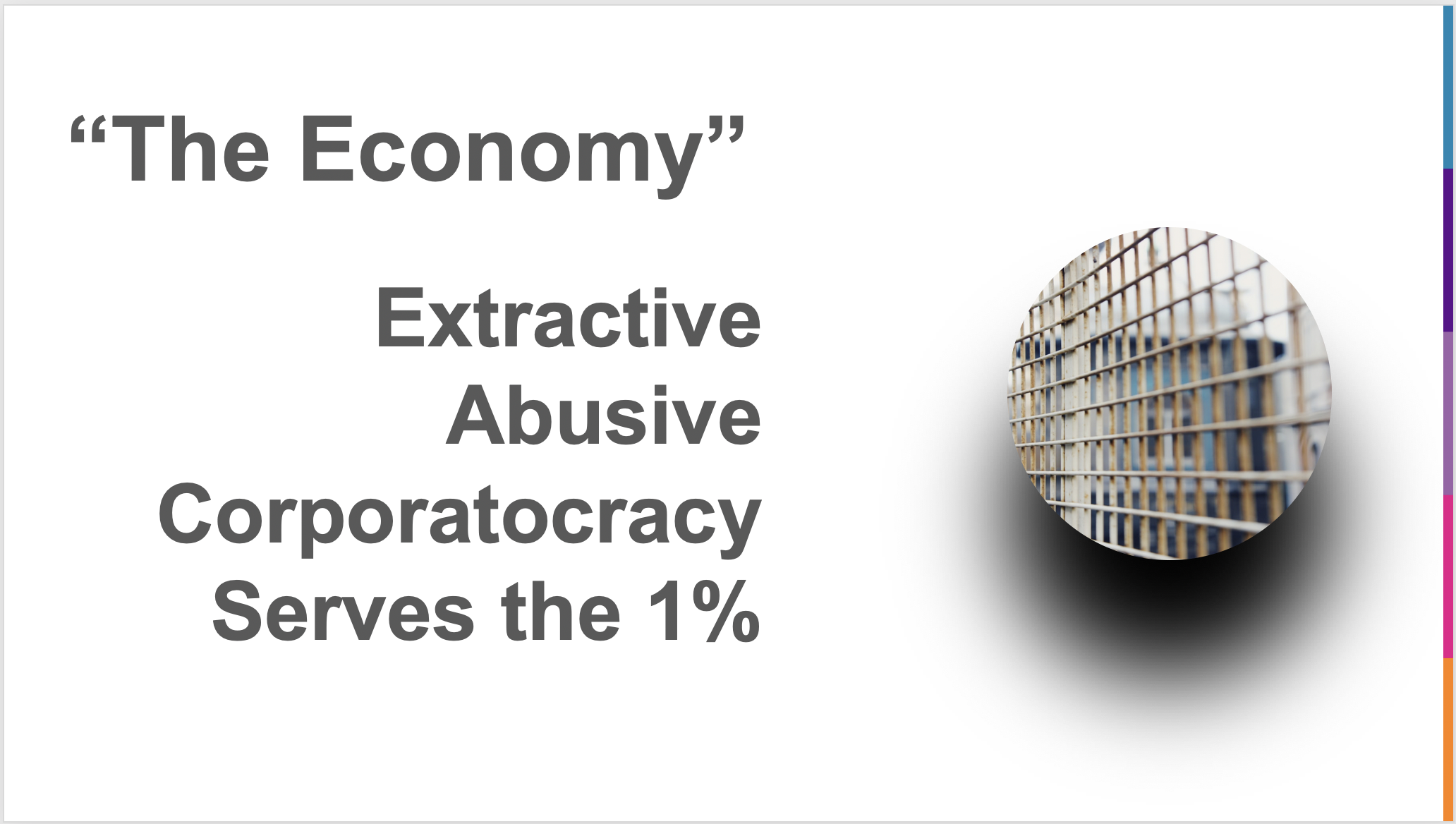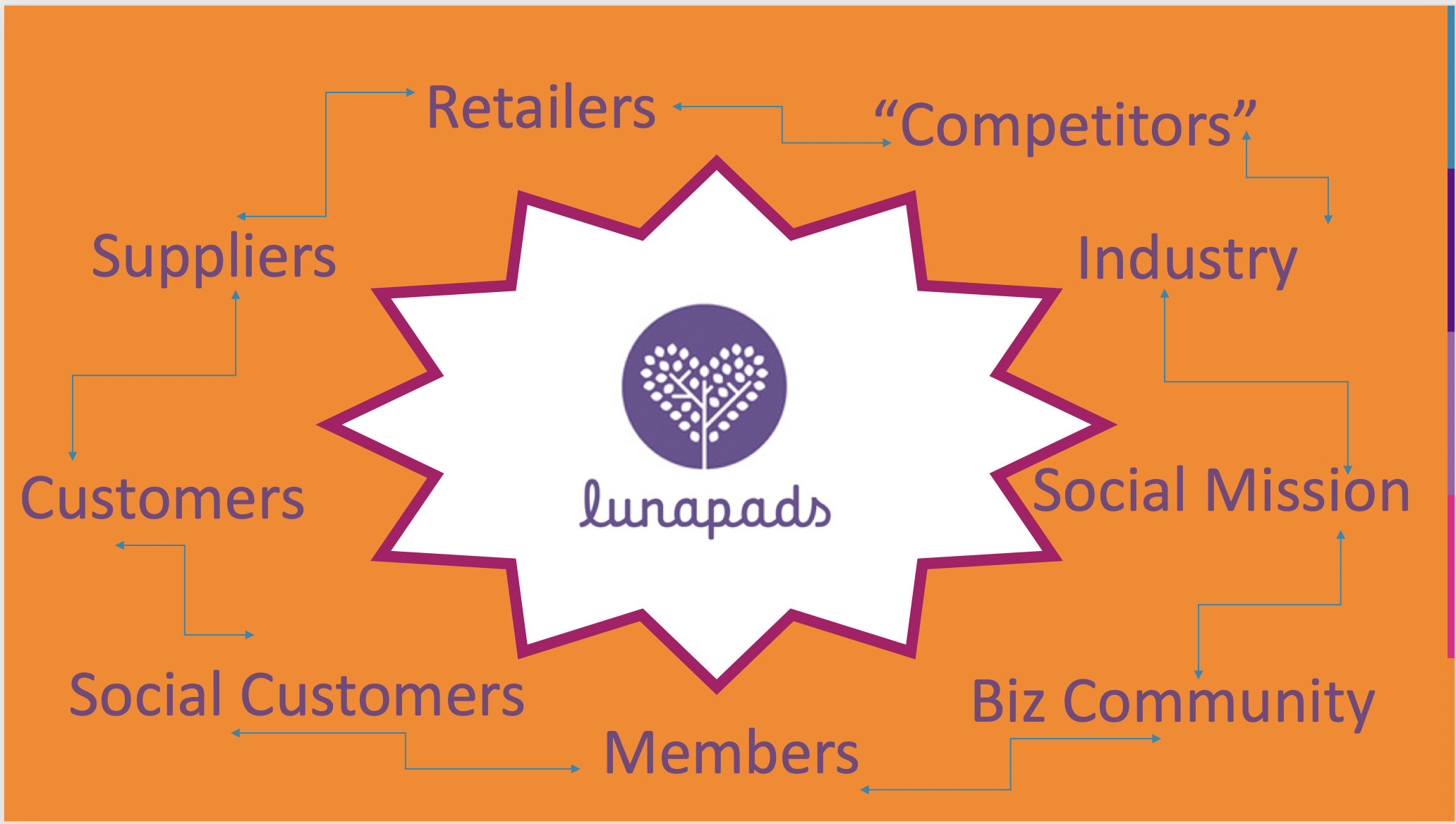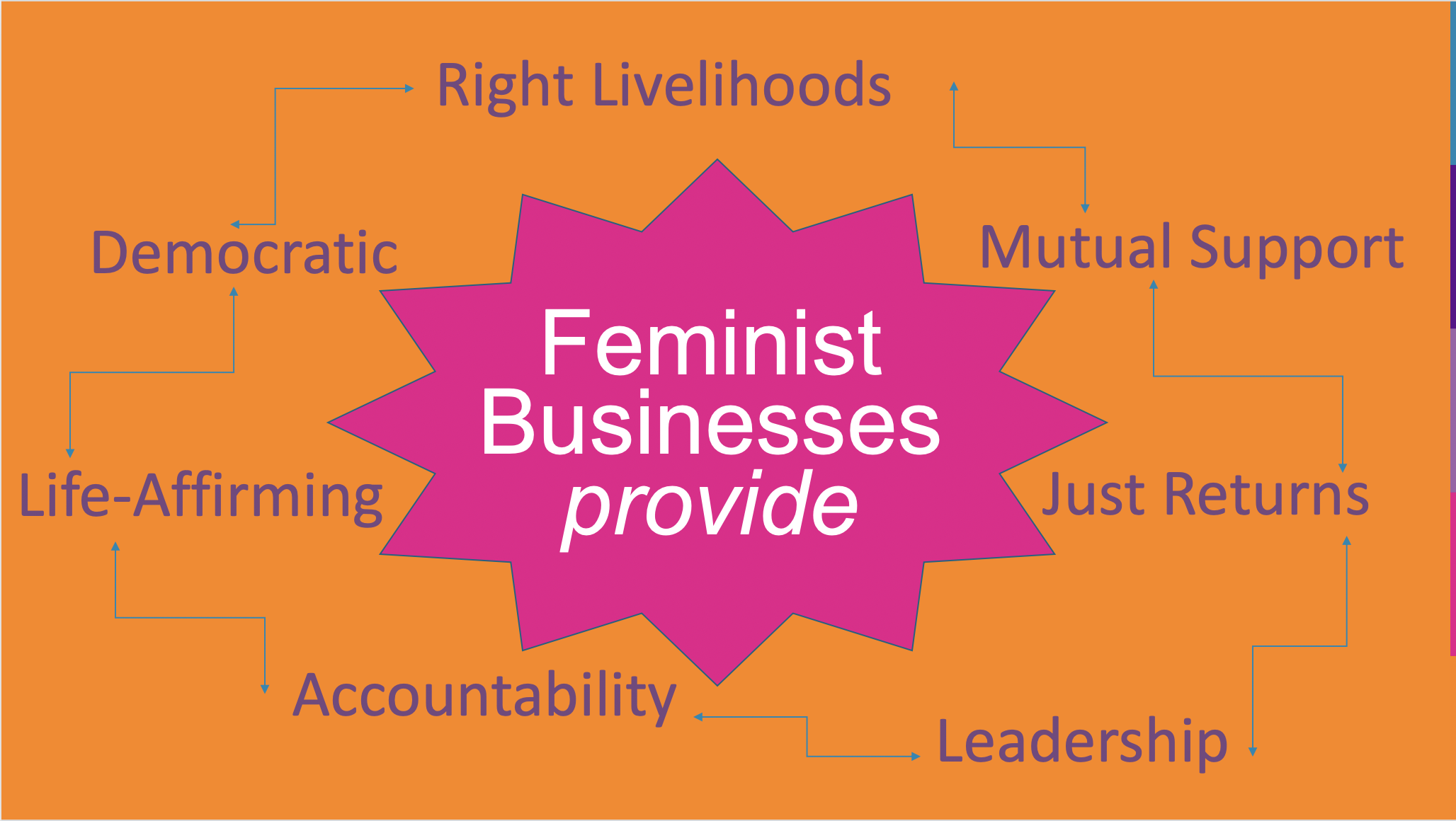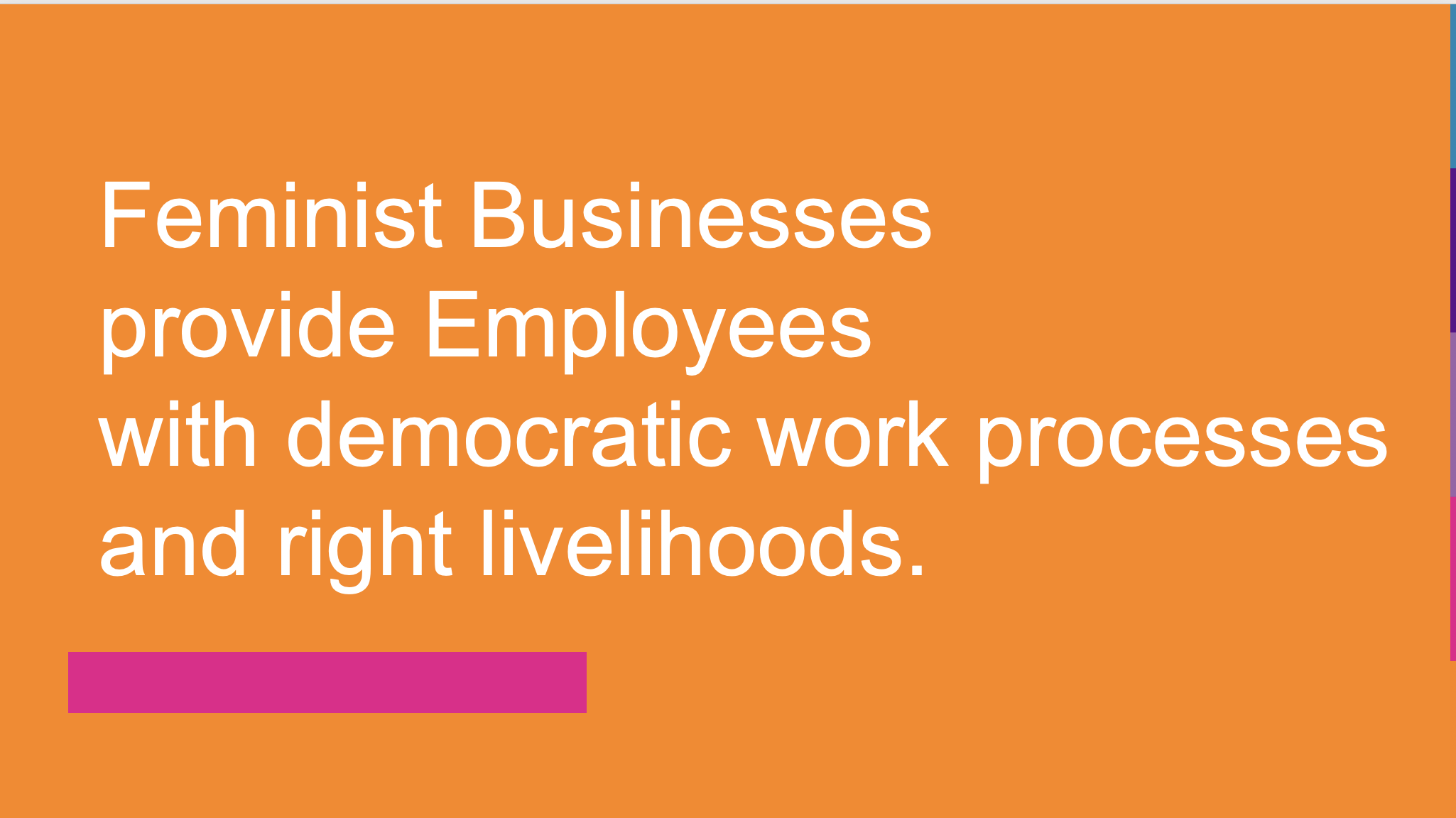Transforming to a Feminist Economy
I was excited to be invited to give a talk at the SheEO World Summit in Toronto on March 9, 2020, because this community of entrepreneurs is such a source of energy in the entrepreneurial feminist ecosystem. Several of the speakers at the SheEO Summit, like Carol Ann Hilton, Dori Tunstall, and Golnaz Golnaraghi were speakers at the Entrepreneurial Feminist Forums of 2018 and 2017, and several of the entrepreneurs there had also attended the Forums and our FBMC workshops. Even though there were many among the 800 attendees who didn’t know much about feminist entrepreneurship, it was wonderful to talk with an audience that was so ready to hear these ideas.
My daughter sat in the front row of the auditorium and caught the talk on her iPhone— you can watch the video at the bottom of this post. Consider this talk the sibling of my TEDxHoboken talk on the Boost Economy (https://youtu.be/6zmP1nkZuDM), since “Boost Economy” was the language I was using back in 2013 to describe a feminist economy and a feminist business’s approach to creating a business ecosystem where everyone could flourish.
Here is a revised transcript of my talk, along with a few of the slides I shared.
Note that this talk is personalized for the SheEO audience— I use SheEO’s #RadicalGenerosity practice of the #Ask and #Give to wrap up my talk, and I use one of SheEO’s first funded ventures, LunaPads, as an example throughout.
Transforming to a Feminist Economy
SheEO World Summit, Toronto, March 9, 2000
It’s great to be with the SheEO community because I can count on all of us sharing a set of beliefs about women and business. Chief among these is that we believe if we can get more women into business, more women funding businesses, and more women leading businesses, we're going to be able to change the world. I love being part of a community that's dedicated to doing just that, because it’s clear to so many of us that our conventional understanding business and “the economy” is something we have to change.
The current economy isn’t working for us.
This economy is extractive and predatory: It takes more than gives back, it takes without restoring or regenerating. This economy is abusive. Working in this economy hurts us and causes us pain. This economy is a “corporatocracy”, where financiers and the elites at the top of our largest corporations set the economic agenda for the rest of us. These elites, and not us, get to decide what should get done, what should be made, and how we should define business success. They do this in ways that serve themselves, the 1%.
This system we call “the economy” centers around marketplaces. It prioritizes and values efficiency, and it’s designed to support the activities of buying and selling stuff. All so that we can generate profits for owners and investors. That's what “the economy” is set up to do.
Since we know that this economy is not working for all of us, and especially not working for women and other marginalized people, I propose we shift to a feminist economy.
What’s a feminist economy, you might ask?
Let me tell you what it's not. It's not an economy that celebrates so-called “feminine” qualities and it's not an economy that rejects or disparages all “masculine” qualities.
The idea of feminine and masculine qualities is a social construction, and not a social construction that’s appropriate for characterizing an economy, much less for characterizing human beings.
We don't need to gender our economy, because the values we need in our economy aren't “masculine” or “feminine”. The values we need in our economy are feminist.
What do I mean when I say it should be a feminist economy?
We should be working towards an economy shaped by and supporting the values and goals of feminism.
Feminism is a worldview and a political movement for all of us to end oppression and sexism, to establish equality and justice and to create a world where everyone flourishes. That's the ultimate goal.
So if we take feminism, the values of feminism, the goal of feminism, and we put it into the economy, here’s what we’re going to do. We're going to challenge and change systems of power that create oppression and support domination. As we dismantle this systems we’ll also be building new systems that support equality and justice, that support participation by all of us, that support care and relationships, and then ultimately provide what we all need to flourish.
The word “provide” is very important within feminist economics.
Instead of focusing on buying and selling for profit, feminist economics examines a much larger sphere of activity. Feminist economics focuses on what we do to provide for each other what everyone and every living system needs.
A Feminist Economy
A feminist economy is decolonized, because no oppression exists. A feminist economy evolves from and is guided by democratic processes in which we all participate. A feminist economy is regenerative; it not only replaces and restores what it uses but also it creates entirely new value. And, a feminist economy serves all of us.
To get to this feminist economy, we have to prioritize caring. We have to support and focus on relationships. And ultimately we have to understand that our goal is providing for each other. It's not making money, it's getting to each other the resources that we all need so that we can all flourish.
As we now recognize, the goals and the intent of a feminist economy are fundamentally different from what's going on in our economy right now.
What can we do to help transform to a Feminist Economy?
Since all of us here at SheEO are involved in founding businesses, leading businesses, and supporting businesses that are changing the world, a key way we can lead a transition to this feminist economy is through our own businesses. Through specifically feminist businesses.
What are Feminist Businesses?
Let me tell you what they are not.
A feminist business is not a business founded by a woman. A feminist business is not a business that supports and serves women customers with women-oriented products. A feminist business is not a business that has lots of women on staff. A feminist business is not just a business that adds more women but still runs just like any other conventional business that didn’t have women founders or leaders.
A feminist business does two things simultaneously: it promotes feminist values and it makes and sells things to make money.
A feminist business has to be a sustainable, profitable business. It also has to promote justice. It has to operate regeneratively. It has to create collective value and, like a feminist economy, it’s got to provide for flourishing for all of us.
To be sure….
We absolutely need more businesses founded by woman, more businesses that serve women customers with women oriented products, and more businesses staffed with women. It’s important to have more women in business, but this one tactic isn’t enough. “Adding more women” is not enough to change the business world and its systems of power and lead us to a new feminist economy. Instead…
What we need are feminist businesses, businesses that are organized around the principles of feminism and that are intended to challenge and change systems with power.
As Joy Anderson clarified in the talk before mine, and which I discuss at length in my book, system change is not just about challenging gender, or race, or ability, or sexual orientation, or any other social categorization. All of these -isms have the same goal: to protect the illegitimate power of the few at the top, at the expense of all of us.
System change means we challenge the underlying systems of power that sexism, racism, ableism, settler colonialism, heterosexism, and so many social categorization schemes are each and all designed to sustain.
Focusing on the systems it creates with each of its stakeholders, feminist busiensses challenge and change conventional power dynamics. At the simplest level, they challenge the power dynamic where the business designs systems to extract resources from its stakeholders and maintain some kind of dominance and control over them. Instead,
Feminist businesses design themselves to provide for their stakeholders by supporting them with resources that help both the business and its stakeholders to flourish.
Feminist Businesses provide resources to their whole circle of influence, their own small ecosystem. We're providing for our stakeholders, employees, customers, investors, suppliers, the community and the whole group around us. And what feminist businesses provide is a range of resources that are critical to business and human flourishing.
Let me illustrate how, using the example of one of the original SheEO ventures, LunaPads.
Since its founding, LunaPads has been working as a feminist business to provide resources and to challenge systems of power all throughout its ecosystem. LunaPads is rather easy to use as an example because they have always been generous with sharing their learning.
One way to see just how different LunaPads is from a conventional business is to compare them, point by point.
When a conventional business makes a product and markets a product, they are likely to point out that there’s something wrong with you. They’ll provoke your sense of insecurity to make you go buy stuff to fix yourself. And the stuff they’ll sell you is likely going to be of minimal value and minimal quality. Not LunaPads.
LunaPads offers life-affirming products, products that are organic, sustainable, non-toxic menstrual products. When you use these products, they make you feel good about your body, they make you feel that about your humanity. Their products change your life, because LunaPads has changed the ways it as a business thinks about you as a customer.
Feminist businesses also give employees a different experience. They create a different relationship between the company and the employees and among the employees as a group, by work systems like democratic decision-making processes.
If you look at LunaPads’ organizational structure, you won’t find their CEO or even their Co-CEOs sitting at the top of the pyramid, telling everybody else what to do. What you will find instead is that a gender nonconforming employee has led an initiative to create gender inclusive product lines. You're going to find that one of LunaPads production coordinators has figured out how to lead the whole organization in reducing production waste to zero. You’ll find employees actively, creatively, adding to each conversation and shaping each decision.
LunaPads runs itself in ways that challenge the conventions of power, the conventions of how a business should be run. And they do things differently so that they can build in democracy and agency. This makes everyone’s work roles more meaningful and the company more innovative too.
LunaPads has also challenged and changed the ways that their business interacts with stakeholders like investors.
Earlier, Joy Anderson described how private equity firms and funds impose their values and priorities on businesses when they offer these businesses money. They use the financial relationship to reinforce the power of money over the power of other values, and the power of investors over the power or makes and founders.
You know where Lunapads goes for money? They go to organizations like SheEO. They go to groups that support their mission, align with their values, and set financial terms that make organizational and human sense. LunaPads gets funding from other more traditional sources too, and aim to do this in ways that don't sell out their soul or their values. When they are looking for people to invest in them, they are looking for people who want to give them money for reasonable, sensible, sustainable, organic growth. Not crazy 10x returns that are inappropriate to expect from their business model, their products, and their industry.
Yes, they might have taken on less money than they needed at times, and at the same time they have retained their ownership, their product quality, their mission, and their organizational health.
Feminist businesses also do something innovative with their suppliers. We're very familiar with conventional way of thinking about supply chain management, especially with the idea that we're supposed to pressure our suppliers so they give us resources at the lowest possible price and at the terms that work best for us. Often, we ask our suppliers to meet our demands in ways that threaten their own financial health and sustainability.
But a feminist business like LunaPads approaches their suppliers differently. They go to their suppliers and say, “Hey, will you step into a mutually supportive relationship with us? We want to step up to a higher level of ethical expectations. We want to step up to a higher level of environmental standards. If you do that with us, we will stick with you in the long haul.”
Feminists businesses do something else that seems crazy in our current environment and that conventional businesses shirk from doing.
Feminist businesses hold themselves accountable to their communities.
Often, when things go wrong for a business or when their are questions about their products or operations, conventional businesses will ignore the concern, they’ll placate their community, they might even lie to them, and they won’t actually deal with the issue. Consider that just a a few months ago in the menstrual products industry, are really important question was raised: “Are these menstrual underwear made with toxic materials?”
A few companies in the industry responded in one way or another, but LunaPads didn’t. They didn’t have to. For the last almost-twenty years, LunaPads has had all of their product information transparently, legibly, and publicly available right on their website. You can find it all on LunaPads.com (now periodaisle.com) LunaPads was holding themselves accountable to the community already, for the promises they’d made to customers and the industry. That’s one of the many reasons LunaPads’ customers are so loyal.
Feminist businesses serve as possibility models for all the rest of us. They offer business leadership to their industry community and their “competitors”.
It’s not a surprise, when you think about, that there are so many startup menstrual products companies that are promoting their sustainable and nontoxic products or that market their products with life-affirming messages and gender inclusivity. This is happening in large part because LunaPads has been leading innovation in the menstrual products industry for the last 20 years.
LunaPads has been sharing their values about what the whole-human menstrual experience could be. They've been sharing their best practices about how feminist business could get things done. And they have coached and taught and encouraged a whole ecosystem of businesses in their own industry as well as in the world of social entrepreneurship. And even here at SheEO.
LunaPads, as a feminist business, has being leading their entire ecosystem by offering:
- life-affirming products,
- democratic work processes,
- right livelihoods,
- mutual support,
- just returns,
- system leadership, and
- accountability to community.
All of these wonderful resources support each and every member’s flourishing.
Feminist Businesses Provide Valuable Resources to Their Ecosystems and Help All Parties Flourish … because their systems put feminist values into practice.
Why is LunaPads doing all this? What explains it? LunaPads provides all of this to their ecosystem not because they're a company founded by women or run by women or employing a lot of women. That women have these important roles is not insignificant and/but it doesn't explain the difference that LunaPads makes.
What makes the difference here? What matters most here is that…
LunaPads is a business lead by feminists, calling on feminist values, and deploying feminist business practices.
What can we learn from LunaPads and other Feminist Businesses that will help us transform our economy?
Here in the SheEO community we try to learn from and share with each other’s businesses. LunaPads is one of our own ventures. What happens when we step back and look at LunaPad’s feminist ecosystem? What are we learning from them and from other feminist businesses?
One thing we’ve learned that’s really critical:
It's important and it's undeniably significant that we have women taking the lead in these organizations, that we have women founding these organizations, that we have women funding these organizations and that we have women learning from these organizations. We cannot let go of this important step.
But/and … What we've also learned is that it's time to take on the next level of challenge.
It's time to ask ourselves and the SheEO community to create feminist businesses so we can get on with the transformational task of providing for everybody.
As business people ourselves, what systems should we be working on? What should we be doing with the business tools we have at hand to move towards a feminist economy? We can use the very systems we work in and work with to create feminist businesses. Then we loop these businesses together into feminist business ecosystems, ultimately to create a feminist economy. That's the work we get to do.
It’s a really big idea and a huge task. It’s really easy to talk about, and much harder to actually do. So in addition to talking about all these big ideas here at the SheEO Summit, we simply must come back to the critical question:
What can we do? What can you and I do to take on this next level of challenge?
My #Ask: Practice Feminist Entrepreneurship
At SheEO we’re familiar with the idea of the #Ask. So, here is my #Ask. What I’m asking you and all of us to do is to invest in practicing feminist entrepreneurship. And by that I mean, I want you to treat your business activity as political activity, as activity that challenges and changes oppressive systems of power and create something better.
I want you to think about demonstrating feminist values and feminist practices in your everyday work. And I want you to look at your own circle of influence and ask, “Where can I start changing systems with the very work that I do?”
That is my #Ask.
My #Give: Resources for Learning
And of course, I've got a #Give for you. We've got some resources that we've put together to help you think about how to practice feminist entrepreneurship and move towards a feminist economy.
Download a reading list on my website (cvharquail.com).
Go to FeministsAtWork.com for a list of everyday feminist business practices.
Become a subscriber at LiisBeth.com, the world’s information hub for feminist entrepreneurship.
Get Barb Orser and Catherine Elliot’s book Feminine Capital, the research that catalyzed this conversation.
And, get my book on Feminism and Business to get knee deep in the ideas.
Follow this list of of folks on Twitter, all of whom are part of our SheEO community.
That’s just a start.
Turn to your very best resource: The SheEO Community
We have right here the very best resource: In the SheEO community we have each other. We have a depth of experience and a fierce commitment in this room that we can turn to anytime.
If you’re trying to figure out what's next — How do I do it? Where can I find the answer? Can you help me? The answer is always Yes.
Here in this community of feminist entrepreneurs, we can build feminist businesses, we can fund and found businesses led by women, and we can transform to a feminist economy where we all flourish together.


















